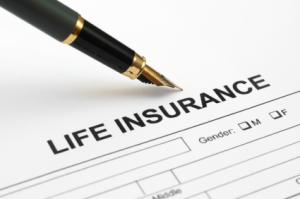Dear Liz: In the last few months, I have received collection calls and emails for payment, sometimes before I even got the invoice and in every case before payment was due. For example, on Sept. 25 I was emailed for the second time for payment on an invoice with an Oct. 17 due date. Some but not all of these communications relate to medical bills. Is this legal?
Answer: Probably. Most companies wait until a bill is seriously overdue before turning it over to collections. Some hire collection agencies much sooner, however, and a few — including some medical providers — turn over their whole accounts receivable process. That means the collectors are responsible for regular billing, not just debt collection.
It’s unpleasant to hear from collectors, especially on an account that isn’t overdue, but you’re not likely to face credit score damage as long as the bill gets paid on time. Even if it’s past due, there is now a 180-day waiting period before unpaid medical debts can show up on people’s credit reports. (The clock starts on the bill’s first due date.)
Collectors may justify their “outreach” calls and emails by saying many people are confused by medical billing and put off paying because they think insurance will take care of the bill. That doesn’t make such contacts less annoying for those who pay on time.
Consider letting the medical providers and other companies know that you don’t approve of these tactics. Some may care enough about customer service to change their billing approach, or require the collection company to stop the premature contacts.
 Today’s top story: 3 questions to answer before taking out student loans. Also in the news: Debt collection goes high-tech, 7 alternative ways to pay your taxes, and credit card rental insurance doesn’t cover as much as you think.
Today’s top story: 3 questions to answer before taking out student loans. Also in the news: Debt collection goes high-tech, 7 alternative ways to pay your taxes, and credit card rental insurance doesn’t cover as much as you think. 
 Today’s top story: How to save for college without sacrificing retirement. Also in the news: Recovering from a poor credit history, 3 ways to pay off a debt in collections, and the best savings strategies for your personality type.
Today’s top story: How to save for college without sacrificing retirement. Also in the news: Recovering from a poor credit history, 3 ways to pay off a debt in collections, and the best savings strategies for your personality type.  Today’s top story: Life insurance questions you’re too embarrassed to ask. Also in the news: what to do with an IRA when you leave a job, when a debt collector calls to collect money you don’t owe, and the profitable business of lending to subprime borrowers.
Today’s top story: Life insurance questions you’re too embarrassed to ask. Also in the news: what to do with an IRA when you leave a job, when a debt collector calls to collect money you don’t owe, and the profitable business of lending to subprime borrowers. Today’s top story: Overcoming the obstacles between you and retirement. Also in the news: What the President wants to tell college students, what happens when your debt goes to collections, and how to pay less for staying cool this summer.
Today’s top story: Overcoming the obstacles between you and retirement. Also in the news: What the President wants to tell college students, what happens when your debt goes to collections, and how to pay less for staying cool this summer. Owing money isn’t supposed to be a crime.
Owing money isn’t supposed to be a crime.